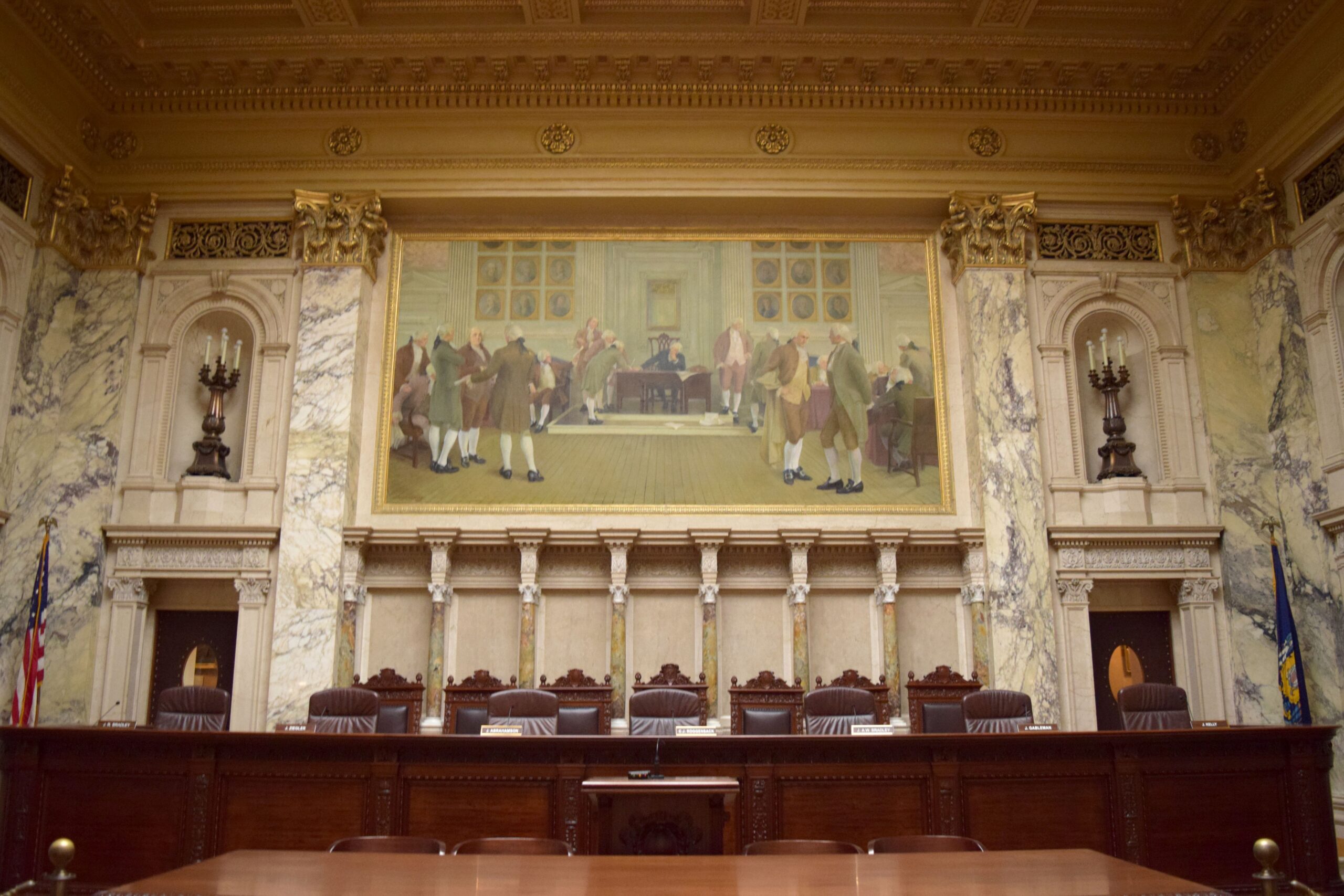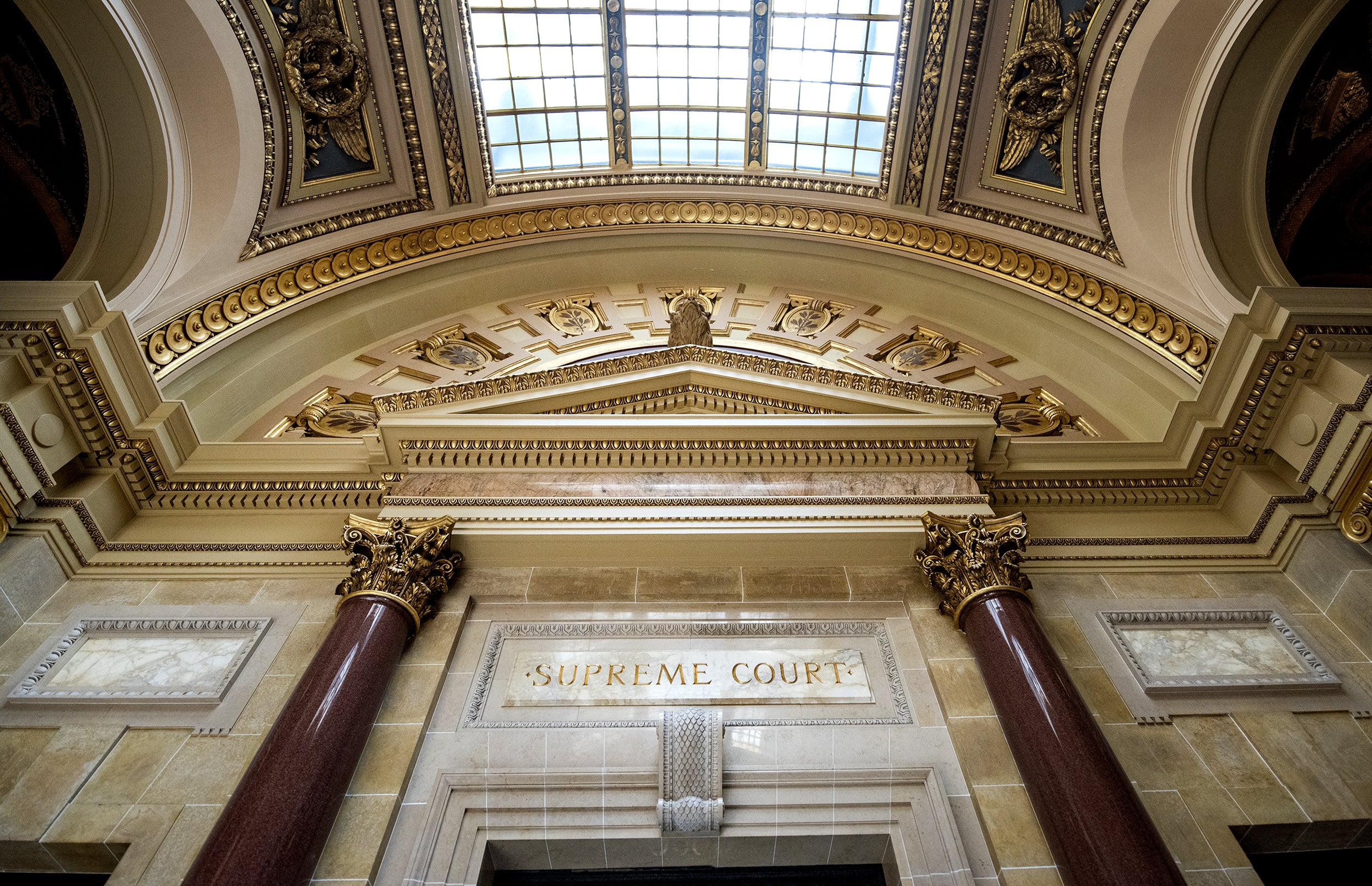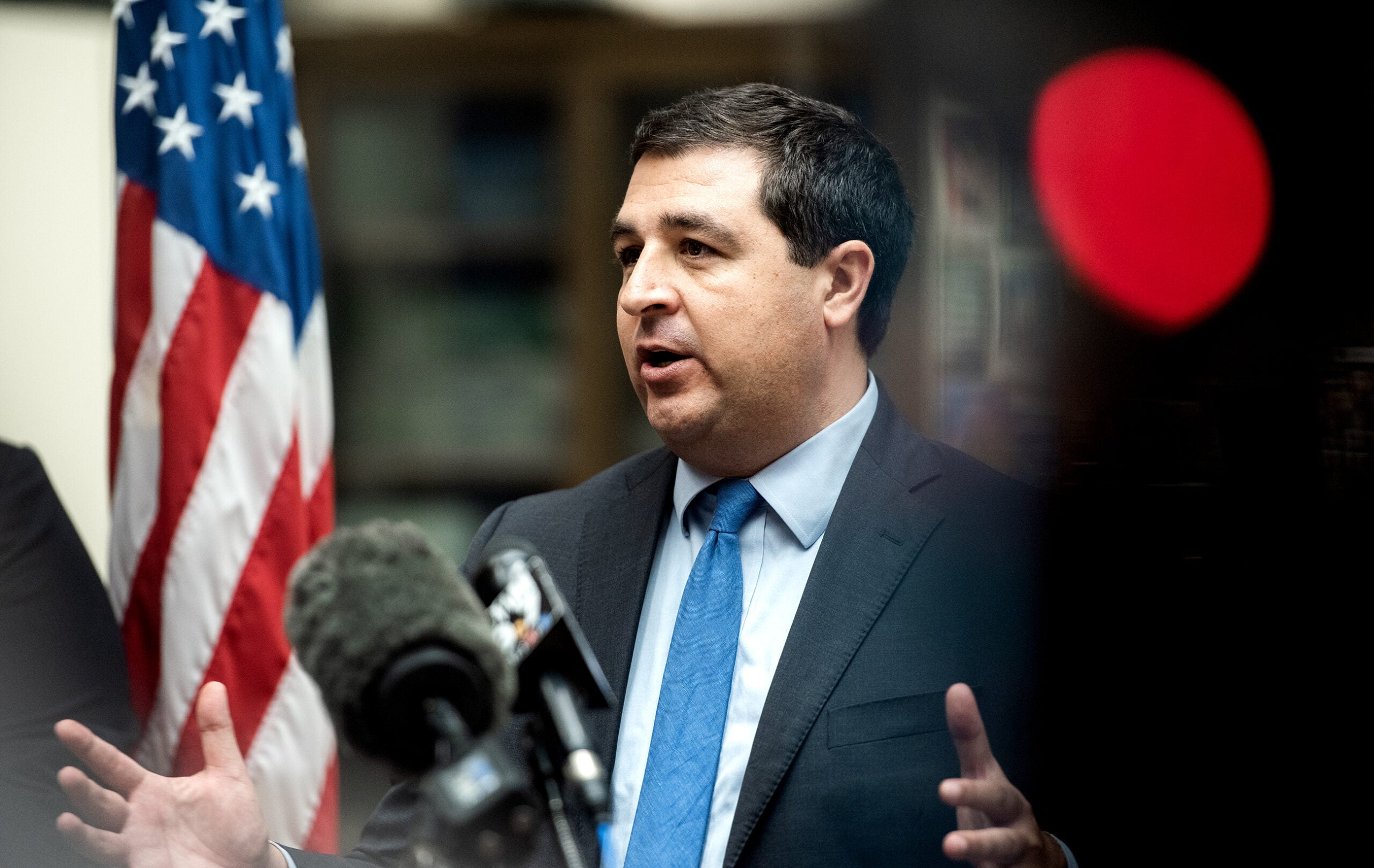The Wisconsin Supreme Court’s conservative majority has sided with Republican lawmakers in a dispute over private attorneys, ruling that the Legislature can enter into a contract with lawyers before a lawsuit is filed.
The case began as an effort to keep Republicans from hiring private lawyers ahead of the current round of redistricting. While the ruling won’t have any effect on that process, Thursday’s decision will ensure the Legislature has leeway to hire private lawyers at its discretion in the future.
A group of plaintiffs represented by Madison lawyer Lester Pines filed the lawsuit in early 2021, arguing Republicans had violated the law when they signed contracts with private lawyers to help with redistricting months before census data was released. The contracts under dispute were signed by Republican legislative leaders in December 2020 and January 2021.
News with a little more humanity
WPR’s “Wisconsin Today” newsletter keeps you connected to the state you love without feeling overwhelmed. No paywall. No agenda. No corporate filter.
One, which was signed with Consovoy McCarthy PLLC, called for paying the firm $30,000 per month for “pre-litigation counseling” starting in January 2021 for a total of up to $965,000 last year. The other, which was signed with Bell Giftos St. John LLC, called for paying the firm an hourly rate of $375 per hour.
In an April ruling, Dane County Circuit Court Judge Stephen Ehlke sided with plaintiffs in the case, ruling that because there was no redistricting lawsuit pending at the time, it was premature for the Legislature to hire private attorneys.
In July, the Wisconsin Supreme Court’s four conservative justices temporarily blocked that decision, admonishing Ehlke for making “errors of law.”
In Thursday’s decision, Chief Justice Annette Ziegler said there was “no support” in the law or “in basic principles of litigation” that supported Ehlke’s decision.
“It strains credulity to conclude that the need for legal advice in this area was fictitious or somehow disconnected from legitimate legislative activities,” Ziegler wrote.
“Contrary to the circuit court’s belief,” she added later, “the legislature’s determination that it needed assistance from qualified specialists, outside the Attorney General’s office, was abundantly reasonable.”
The court’s three liberal justices dissented, with Justice Rebecca Dallet writing that Assembly Speaker Robin Vos, R-Rochester, and Senate Majority Leader Devin LeMahieu, R-Oostburg, had veered from the law in the process they used to sign the contracts.
“As leaders of the legislature, Petitioners have a say in what the law is,” Dallet wrote. “But they are, like everyone else, bound by the laws the legislature enacts.”
Much of Thursday’s ruling was focused on whether Ehlke erred in not staying, or temporarily pausing, his initial ruling while the case was appealed. The court’s conservatives wrote at length that Ehkle should have stayed the ruling while Dallet argued the court was effectively changing its standard for future cases.
While hiring private attorneys to handle redistricting is not new for the Legislature, GOP lawmakers have used them extensively in the years since Democratic Attorney General Josh Kaul was elected. In most lawsuits involving state government, the attorney general defends the state.
For more on the history of redistricting in Wisconsin and how it impacts political power in the state, check out WPR’s investigative podcast series, “Mapped Out.“
Wisconsin Public Radio, © Copyright 2026, Board of Regents of the University of Wisconsin System and Wisconsin Educational Communications Board.






